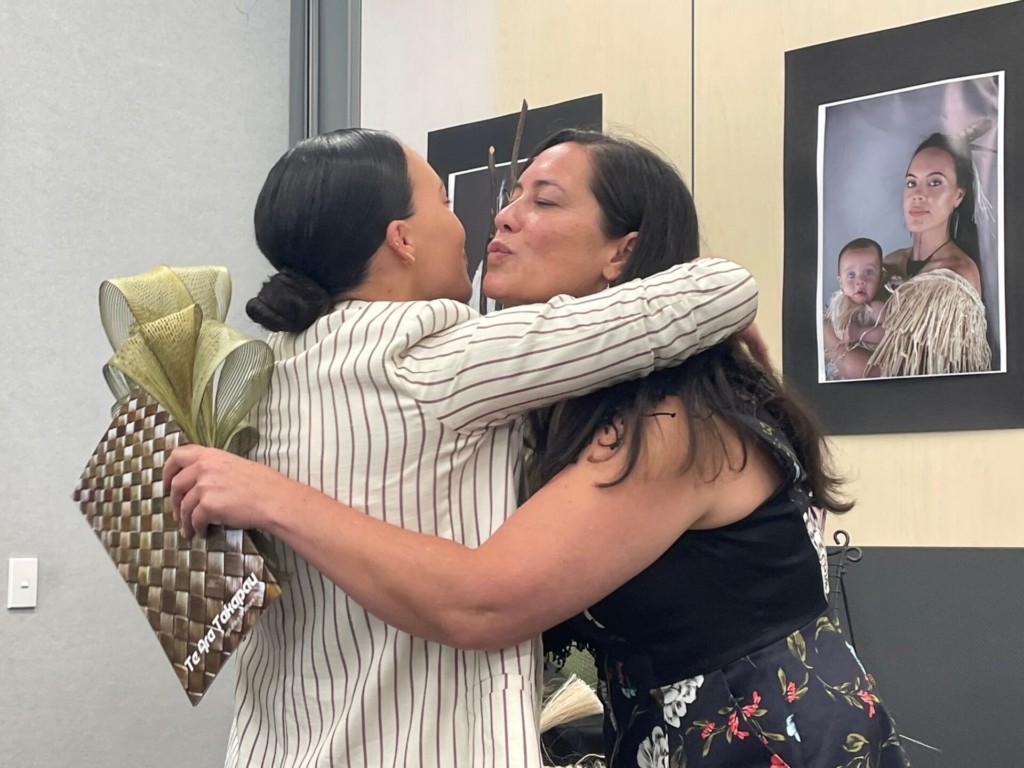
Hine Kerrich (right) at the launch of Te Ara Takapau at Camberley School recently. In the background is a photo of Hine with baby Ariki.
Te Ara Takapau, an inspirational photobook documenting the experience of hapū māmā at the Flaxmere Te Whare Pora, was launched at a Camberley School function recently.
The Te Whare Pora is a weaving centre where expectant mothers and their families learn how to weave wahakura (woven flax bassinet for infants) and in the process get support during their pregnancy. Te Taiwhenua o Heretaunga started this initiative in Flaxmere three years ago.
The book has been put together by Niwa Brightwell, kairaranga (weaver) from Te Whare Pora and Professor David Tipene-Leach, from Te Kura i Awarua research centre at EIT | Te Pūkenga and tells the stories of eight mothers connected by Te Whare Pora through photographs of them and their healthy babies.
The book was launched two weeks ago, where David Tipene-Leach gave a history of the wahakura and the Te Whare Pora initiatives.
“The Whare Pora is an extension of the wahakura and Safe Sleep initiatives – it moves from a simple provision of a wahakura to the creation of an environment that supports pregnant women to weave and to be immersed in mātauranga Māori and the networks of health providers and of the wider community,” he says.
Niwa Brightwell says: “Te Ara Takapau is a record of that experience. These photos are a record of our women being immersed in a tīpuna experience and the subsequent growth and confidence that they all experience.”
The photo shoot used traditional Māori clothing created by Niwa, poetry created by her sister Tētiamana and the photographer was their brother, Marei.
David is part of a research project with Beverly Te Huia and Fiona Cram of Katoa Ltd which is examining the impact of Te Whare Pora.
“The Flaxmere Te Whare Pora has proved to be successful. The question is now who will pick up on this exciting model of antenatal care?
The book includes quotes from each of the women around what the Te Whare Pora had meant for them
“When I think about the whare I think about home because it makes me feel … I’m happy I’m able to relax and take some time to breathe” says Steph, whose baby Judis is a ‘Whare Pora baby’.
Hine, mother of Ariki, talked about “connection to tikanga Māori, unlocking knowledge, community togetherness and belonging”: as her most valued outcomes.
Te Whatu Ora (Health NZ) and Te Aka Whai Ora (the Māori Health Authority) are presently running a RFP (Request for Proposals) round for ‘mātauranga Māori related health initiatives.’

